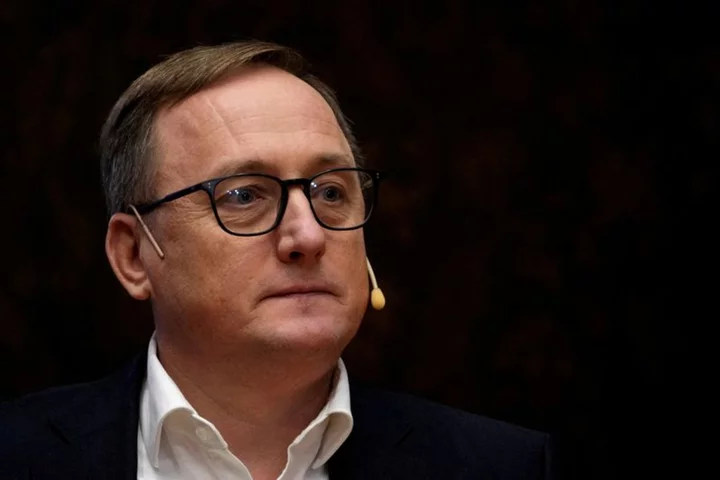By Balazs Koranyi
MARRAKECH The European Central Bank should discuss tweaks to a key bond buying scheme and weigh higher charges for commercial banks, Latvian policymaker Martins Kazaks said on Wednesday, arguing a recent rise in borrowing costs, including for Italy, was not worrisome.
Some investors were spooked by market volatility in recent weeks that pushed up the premium Italy must pay to borrow, and said the turbulence was a lesson for the ECB to stick with a scheme that forms a key plank in fighting off unexpected yield rises.
But Kazaks said the move was merely a reflection of Italy's widening budget deficit and this should not stop the ECB from debating an early end to its reinvestments in the 1.7 trillion euro ($1.8 trillion) Pandemic Emergency Purchase Programme (PEPP).
"With regard to Italy, at least at the current stage, I don't see anything that worries me about an impairment in the transmission mechanism or something that I would consider an unwarranted market reaction," Kazaks told Reuters.
The ECB uses reinvestments in the PEPP scheme with a degree of flexibility, skewing purchases towards more indebted countries when warranted in what some policymakers call the bank's first line of defence.
The ECB is set to reinvest all proceeds from the scheme until the end of 2024 but some have called for an earlier end, given that the bank has been tightening policy to fight inflation.
"I would say that we would gain credibility by adjusting instruments and explaining this, rather than sticking to an instrument for too long," Kazaks said. "Do I think it's necessary or possible to end reinvestments earlier than the end of next year? My answer would be yes."
However, any further reduction in excess liquidity should be gradual and predictable, so changes to PEPP should not be abrupt, he argued.
Kazaks also said the ECB should revisit increasing the mandatory reserve requirement for commercial banks, which would force lenders to park more cash at the central bank with no interest.
Policymakers considered this option over the summer and decided against it, but some hope the issue would come back when the ECB reviews its broader operational framework early next year.
"This is an instrument that has been used in the past regularly," Kazaks said. "There is a case to be discussed ... I think a larger multiple would be a discussion point."
But Kazaks played down the prospects of further interest rate hikes, arguing that communication at the ECB should now shift to the duration of high rates from further increases.
"I think interest rate levels are quite appropriate for us to get back to 2% inflation in the second half of 2025," he said. "But I cannot shut the door to a further rate increase sometimes down the road."
($1 = 0.9423 euros)
(Reporting by Balazs Koranyi; Editing by Mark Potter)

